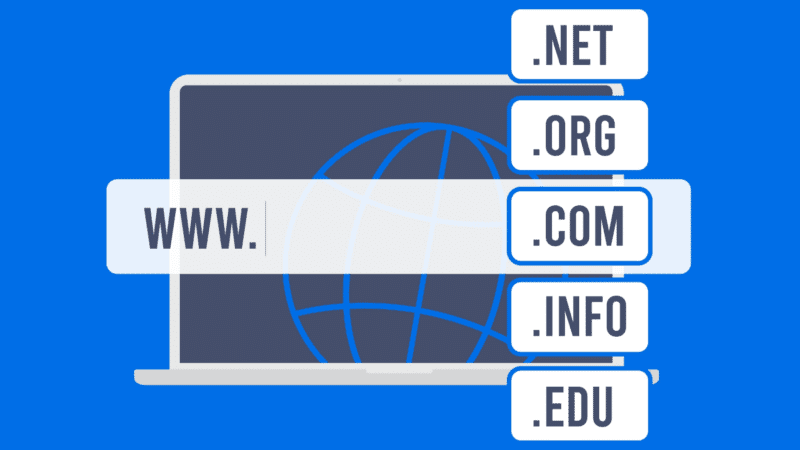Essential Guide: How Domain Extensions Impact SEO

▼ Summary
– Domain extensions, including TLDs and ccTLDs, are debated in SEO for their impact on search engine rankings, with Google stating that generic TLDs like .com, .net, and .org are treated equally.
– Country-code TLDs (ccTLDs) like .de and .fr signal geographic relevance, aiding users and search engines in understanding a site’s target audience, but should be complemented with tools like hreflang for proper localization.
– Businesses expanding internationally must decide between using multiple ccTLDs or subfolders/subdomains, each with its own SEO benefits and challenges, requiring collaboration across teams.
– Newer and branded TLDs (.shop, .tech) face indexing and trust issues, and should be chosen for branding rather than expected SEO benefits, as user familiarity varies.
– Domains like .ai and .io, though originally ccTLDs, have gained global acceptance due to their associations, but the right domain extension should prioritize user experience, branding, and technical strategy over SEO advantages alone.
Domain extensions have been integral to the web’s framework since its inception.
In the realm of SEO, ongoing debates revolve around the influence of domain extensions, specifically TLDs (top-level domains) and ccTLDs (country-code top-level domains), on search engine rankings. The core of the discussion is whether search engines like Google, Baidu, or Bing prioritize certain domain extensions in various regions.
Official guidelines provide some clarity, but much of the understanding stems from practical experience and testing.
Do domain extensions directly impact rankings?
A frequent SEO query concerns whether the choice of a domain extension affects ranking potential in targeted markets. According to Google, no preference is given to extensions like .com, .net, or .org. All generic top-level domains (gTLDs) are treated equally, meaning the TLD itself does not directly influence rankings. However, newer TLDs like .xyz may be flagged more often due to associations with spam or low user trust.
Geo-targeting considerations
Country-code TLDs (ccTLDs) require different treatment. Google’s guidelines suggest that ccTLDs, such as .de (Germany), .fr (France), and .es (Spain), strongly indicate a site’s intended audience in specific countries. These signals help both users and search engines comprehend the site’s geographic focus. However, it’s not always straightforward. Domains like .com.au (Australia) and .in (India) sometimes appear in global English-language search results when Google deems the content useful across multiple regions, particularly if the same language is used. While ccTLDs provide clear signals, relying solely on them for geo-targeting is not advisable. Google recommends using tools like hreflang to properly localize content and signal intent.
Do ccTLDs help with international SEO?
When businesses expand into new markets, they often wonder whether to acquire multiple ccTLDs or use subfolders or subdomains on their existing domain. Both approaches can be effective from an SEO standpoint. Using a ccTLD can clearly signal geographic relevance, but it often involves more setup, such as registering new domains and building equity for each one. Subfolders or subdomains allow leveraging the authority of the existing domain but might pose challenges depending on the content management systems and ecommerce platforms used. The decision should involve collaboration between product, engineering, and branding teams, considering internal resources and the complexity of maintaining multiple site versions.
New and branded TLDs (.shop, .tech, .agency)
Newer and branded gTLDs might face specific challenges. Although Google treats most of these domains as generic, some have practical indexing difficulties, like .xyz, which spammers frequently use due to low registration costs. It’s also essential to consider how SEO tools handle these TLDs. For instance, .agency domains were initially excluded from certain link analysis tools, affecting the perceived authority of sites using them. User trust and click-through rates (CTR) also play roles; unfamiliarity with newer or novelty TLDs might deter clicks. Audience reactions vary by market; tech-savvy users may accept novelty domains more readily than mainstream consumers. Therefore, these domains should be chosen for branding purposes rather than expected SEO benefits.
Will a .ai domain help with AI-related searches?
The .ai domain has surged in popularity, aligning with the AI boom. Despite its association with artificial intelligence, .ai is the ccTLD for Anguilla, initially registered in 1995. While it may enhance click-through rates and user perception, there’s no official evidence that Google favors .ai domains in AI-related queries. It’s important to note that Anguilla could change registration rules if it decides to regulate more closely. Currently, .ai is a viable option for tech startups, but this could evolve.
Can I use a ccTLD for a global audience?
Yes, in certain cases, a ccTLD can serve a global audience. The .io domain, for example, is the ccTLD for the British Indian Ocean Territory but is widely adopted by tech companies and startups due to its association with I/O (input/output). Despite being a ccTLD, .io domains often rank globally, demonstrating that user expectation and search engine behavior can allow other ccTLDs to follow this path over time. Domains like .ai and .io have built strong reputations beyond their original geographic purposes.
The right domain extension can improve trust and SEO reach
Selecting the right domain extension is crucial, but the decision should focus more on user experience, branding, and technical strategy rather than solely seeking an SEO advantage. Google generally treats most TLDs equally, though newer or specialized extensions might face issues like lower trust or indexing challenges. While ccTLDs offer strong location signals, they are not the only method for international SEO. Subfolders, subdomains, and hreflang tags are also vital for reaching diverse regions. Domains like .ai or .io have achieved global acceptance, but these are exceptions rather than the rule. Ultimately, the chosen domain should align with your target audience, team capabilities, and brand evolution, balancing SEO considerations with broader strategic goals.
(Source: Search Engine Land)






